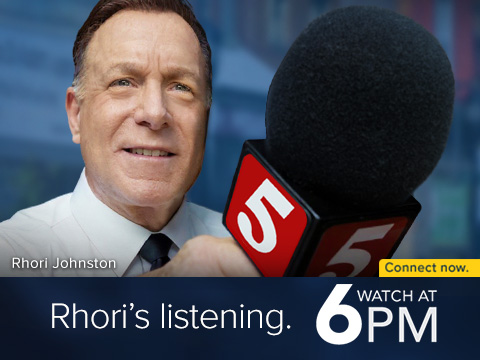NASHVILLE, Tenn. (WTVF) — Ticketmaster, one of the world's biggest ticket sellers, is facing backlash for changing its refund policy during the COVID-19 pandemic.
For example, if a concert or a show is canceled, you can get your money back. However, that’s not necessarily the case if the show you're seeing is postponed.
Initially, if a show was postponed, you could use that ticket to go on the new date or you could get your money back.
Now, the website says refunds can only be given if a show is canceled.
Ticketmaster is pushing a lot onto the artists. The company says if the event organizer is offering refunds for postponed shows, they'll let you know.
MORE TENNESSEE COVID-19 COVERAGE
- Mask mandate, capacity restrictions lifted in Nashville; what you need to know
- Tennessee, Metro to offer COVID-19 vaccine to children 12-15 years old
- Nashville's COVID-19 testing centers to adjust operating hours
- Walmart pharmacies in Tennessee now offering COVID-19 vaccines
- Donate to the COVID-19 Middle Tennessee Emergency Response Fund
See all our coronavirus coverage here
COUNTY-BY-COUNTY CASES IN TENNESSEE
What is COVID-19 (a.k.a. the new coronavirus?)
According to the World Health Organization, coronaviruses (CoV) are a large family of viruses that cause illness ranging from the common cold to more severe diseases. Examples include the Middle East Respiratory Syndrome (MERS-CoV) and Severe Acute Respiratory Syndrome (SARS-CoV). A novel coronavirus (nCoV) is a new strain that has not been previously identified in humans. COVID-19 stands for "Coronavirus disease 2019," which is when this strain of the coronavirus was discovered.
What are the symptoms?
The CDC says patients confirmed to have the 2019-nCoV reportedly had mild to severe respiratory illness with:
- Cough
- Shortness of breath or difficulty breathing
Or at least two of the following symptoms:
- Fever
- Chills
- Repeated shaking with chills
- Muscle pain
- Headache
- Sore throat
- New loss of taste or smell
At this time, the CDC believes symptoms could appear as soon as two days after exposure, or as long as 14 days.
Prevention
The CDC is recommending "common sense" measures such as:
- Wash your hands often with soap and water for at least 20 seconds. If soap and water are not available, use an alcohol-based hand sanitizer.
- Avoid touching your eyes, nose, and mouth with unwashed hands.
- Avoid close contact with people who are sick.
- Stay home when you are sick.
- Cover your mouth and nose with a cloth face cover when around others.
- Cover your cough or sneeze with a tissue, then throw the tissue in the trash.
- Clean and disinfect frequently touched objects and surfaces.


